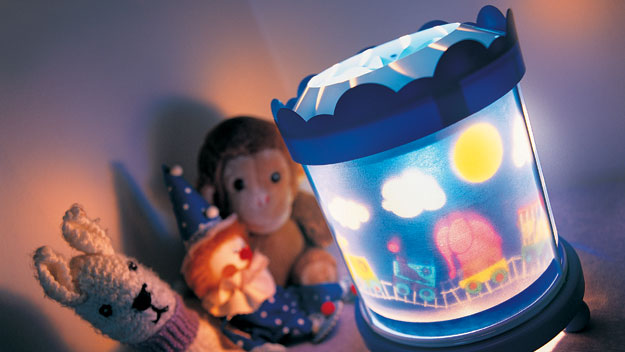While not ideal for your beauty sleep, it’s completely normal for your newborn to wake every few hours during the night to be fed.
But to help him differentiate between night and day, it’s a good idea to follow a simple set of rules to help each night’s feed be as relaxed as possible for you both. And then hopefully you’ll be able to get back to sleep ASAP…
1. Keep the lights off
To make it clear it’s not daytime, and to create a sleep-inducing environment, resist the urge to turn the lights on. If you have a night light or a dimmer switch that should be enough.
2. Avoid interacting with your baby
Chatting to your baby will keep him awake and stimulated, when he should be ready to fall back asleep. If he’s unsettled after his feed, wait to see if he’ll settle himself and stroke his forehead or hum him a lullaby to help soothe him if he needs it. But don’t pick him up unless he’s really upset or needs a change.
3. Don’t feed him unless necessary
If your newborn doesn’t ask to be fed, try and leave him to wake himself up when he’s hungry – this tends to be every two to three hours. The maximum your newborn should go without a night feed is five to six hours so that he’s getting enough nutrients and putting on weight. However, babies who have weight issues do need to be woken up at regular intervals. Check with your GP or early childhood nurse if you’re unsure.
4. Burp your baby
Just like you would in the day, burp your baby after each night feed. Any trapped air in his stomach will leave him feeling uncomfortable and may lead to tears, which you want to try and avoid at 3am.
5. Keep your baby close
Having your baby’s cot beside your bed will be a huge help during those first few months when you’re waking often to feed him. Plus, the World Health Organisation recommends babies sleep in the same room as their parents for the first six months.
6. Only change your baby if necessary
Changing your baby’s nappy may wake him up, so avoid it unless he does a poo or is sodden. However, if your baby falls asleep during his feed it may be worth trying to change his nappy half way through to wake him up for a proper feed.
7. Be organised
Have everything you need during your night feeds in the same room as your baby. A feed can take a while, so it’s a good idea to have some water, nappies, snacks for yourself and anything else you may need to hand. If you’re bottle feeding, you can speed up the process by having clean bottles and the formula ready to go.
8. Hide the clock
As tempting as it is to look at the time, watching the seconds tick by will make you realise just how late it is and how little sleep you’ve had. Plus it won’t help you get back to sleep after you’ve finished the feed.
9. Ask for help
If you’re really struggling, ask your partner to help with the feeds – he could give expressed milk in a bottle. Alternatively, enlist the help of a friend or family if you need the night off. While you may still need to get up and pump, you’ll be able to go straight back to sleep after and let the other person soothe your baby back to sleep.
10. Get comfortable
Although you need to make sure you don’t doze off during each night feed, there’s nothing wrong with resting. Invest in a comfortable chair that you can sit in while feeding your baby.


